March 24th
On March 24th Senator Blunt spoke on the Senate Floor regarding third phase of coronavirus response legislation, the CARES Act, and outlined specific provisions in the bill that would provide immediate relief to individuals and families, small businesses, and health care providers. Watch video below or CLICK HERE For audio only.
March 17th
Key Takeaways Provided by US Senator Roy Blunt’s Office on March 17th
PROVIDING THE RESOURCES TO FIGHT CORONAVIRUS
- Congress provided $7.8 billion in discretionary supplemental funds to target research and development of vaccines and treatments, and to support state and local public health departments.
- The bill provides $1 billion to the Public Health and Social Services Emergency Fund, available until expended, to reimburse providers for diagnostic testing for people who are uninsured.
- Requires nearly all COVID-19 testing to be provided at no charge including private and public healthcare options.
NUTRITION PROGRAMS
- $500 million for SNAP and WIC.
- $400 million for the Emergency Food Assistance Program, which helps states and food banks distribute food for low-income people through local agencies.
- $250 million for nutrition programs for seniors, including home-delivered meals.
CORONAVIRUS RELATED LEAVE
- Sets up a paid sick leave requirement for employers with few than 500 employees to give to their employees who have the virus; are in quarantine or caring for someone in quarantine; or are caring for a child under 18 whose school is closed. Full-time workers receive 80 hours of paid sick leave, and part-time workers receive time equal to the average number of hours they work in a given two-week period. Pay is capped at $511 per day and $5,110 in the aggregate for employees with the virus or in quarantine. Pay is capped at $200 per day and $2,000 in the aggregate for employees caring for someone in quarantine or for a child whose school closed. The required sick leave and family leave are paired with a refundable payroll tax credit to cover these amounts and the requirement ends December 31.
- Amends the Family and Medical Leave Act to set up a temporary emergency paid leave program through December 31. Requires private employers with fewer than 500 workers and government employers to provide employees up to 12 workweeks of leave, for those who have worked at least 30 days.
- Provides payroll tax credits for employers required to provide emergency paid sick leave or family medical leave under the bill. The emergency paid sick leave credit provides a maximum credit of $511 per day, for up to 10 days or two weeks, for employees on leave because they have the virus or are in quarantine.
- Provides that the Social Security Trust Fund and Railroad Retirement Fund are held harmless through a general fund transfer.
- $1 billion for emergency administration unemployment insurance grants to states.
- Provides 100% federal funding, up from 50%, for extended unemployment benefits. These additional weeks of benefits begin when a state has a high unemployment rate and when a recipient has exhausted benefits in his or her state.
- More from the Department of Labor: https://www.dol.gov/agencies/whd/pandemic/ffcra-employer-paid-leave
- About Implementation of the Families First Coronavirus Response Act (FFCRA)
The U.S. Department of Labor will be hosting a national online dialogue to provide employers and employees with an innovative opportunity to offer their perspective as the Department develops compliance assistance materials and outreach strategies related to the implementation of the Families First Coronavirus Response Act (FFCRA). The ideas and comments gathered from this dialogue will inform compliance assistance guidance, resources, and tools, as well as outreach approaches, that assist employers and employees in understanding their responsibilities and rights under the FFCRA. We need your input by March 29, 2020. Anybody who is interested can participate online at https://ffcra.ideascale.com from March 23 through March 29, 2020 or can join a Twitter chat hosted by @ePolicyWorks on March 25, 2020 at 2 p.m. using the hashtag #EPWChat.
